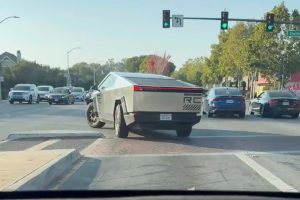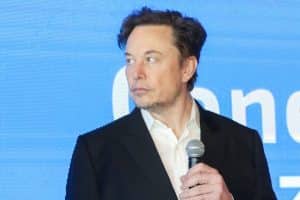- 🚚 Tesla Semi has received a new customer, the wholesale giant Costco.
- 🔋 Tesla’s electric Semi truck is still in the pilot production phase, with plans for mass production starting in late 2025 for external customers in 2026.
- 🏭 Tesla is building a new facility in Reno, Nevada, with a $3.6 billion investment and $330 million in tax breaks, to support the production of the Semi.
- 💰 Major companies like PepsiCo, Walmart, and Martin Brower have already taken delivery of the Tesla Semi for their operations.
- ⚡ CEO Elon Musk shared that Tesla is finalizing the engineering of the Semi to enable cost-effective, high-volume production, leveraging learnings from the pilot fleet.
- 🚀 Despite the progress, mass production of the Tesla Semi seems to be still a little way off, as Tesla continues to refine the vehicle’s production processes.
The Tesla Semi, the highly anticipated all-electric Class 8 truck, is gradually making its mark on the transportation industry. As Tesla continues to refine its production processes and engineering, the Semi is steadily attracting new customers and paving the way for a more sustainable future in the world of trucking.
Costco Joins the Electric Trucking Revolution
In a significant development, the wholesale giant Costco has taken delivery of the Tesla Semi, cementing its commitment to sustainable transportation practices. This move not only showcases Costco’s environmental stewardship but also highlights the growing demand for electric trucks among major corporations.
Pilot Production: A Stepping Stone to Mass Adoption
While the Tesla Semi is currently in the pilot production phase, the company is meticulously preparing for mass production. According to Tesla’s recent earnings report, external customers can expect to receive their Semi orders starting in late 2025, with mass production kicking off in 2026. This strategic approach allows Tesla to gather invaluable data and insights from pilot fleets, ensuring a seamless transition to large-scale manufacturing.
Building a Dedicated Manufacturing Facility
To support the production of the Tesla Semi, the company is investing a staggering $3.6 billion in a new facility in Reno, Nevada. This dedicated manufacturing plant, bolstered by $330 million in tax breaks, underscores Tesla’s commitment to meeting the anticipated demand for its electric trucks. By leveraging the learnings from the pilot fleet, Tesla aims to optimize the production process and achieve cost-effective, high-volume manufacturing.
Early Adopters: Leading the Charge
Major companies such as PepsiCo, Walmart, and Martin Brower have already embraced the Tesla Semi, recognizing the potential benefits of electrifying their fleets. These early adopters not only contribute valuable data to Tesla’s development efforts but also serve as pioneers in the transition towards more sustainable transportation solutions.
Engineering Refinements for Optimal Performance
In a recent earnings call, Tesla CEO Elon Musk highlighted the company’s efforts to finalize the engineering of the Semi. By leveraging insights from the pilot fleet and incorporating learnings from real-world operations, Tesla aims to enable cost-effective, high-volume production while ensuring optimal performance and efficiency.
The Road Ahead: Challenges and Opportunities
While the road to mass production of the Tesla Semi is still paved with challenges, the company’s unwavering commitment to sustainable transportation is evident. As Tesla continues to refine its processes and overcome hurdles, the Semi represents a significant step towards reducing the environmental impact of the trucking industry and fostering a more sustainable future.





